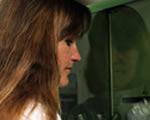 Go to main content
Go to main content
Archive Website of the UK government
Please note that this website has a UK government accesskeys system.
Main menu
Page menu
Government, citizens and rights

When someone dies in hospital or a care home

Staff who have been caring for the person who has died will know what to do and will provide you with emotional and practical support after the death.
What happens first?
The person who has died will need to be formally identified by the person named by them as the next of kin. The next of kin may also need to give permission for a hospital post-mortem examination if the cause of the death has to be confirmed; however, a coroner's post-mortem examination may be carried out without consent.
The body will then be laid out and kept in the hospital mortuary until you arrange for the funeral directors, family or whoever you chose to collect it. If you choose, funeral directors will take the body to their chapel of rest until the funeral takes place.
Staff in the hospital or care home will keep safe the possessions that the person who has died had in hospital until the person administering the estate arranges for them to be collected. They'll issue a receipt when the possessions are collected.
The medical certificate
A doctor at the hospital will give you a medical certificate that shows the cause of death. This has to be produced before the death can be registered. They will give you the medical certificate in a sealed envelope addressed to the Registrar of Births, Deaths and Marriages. You'll also be given information on how to register the death.
If the body is to be cremated, two doctors will sign the medical certificate to show the body has been examined. There will be a charge for this.
Organ and body donation
If you know that the person who has died wanted to donate organs or their body to medical science, it’s best to tell hospital or care home staff promptly. Each hospital and care home will have their own policies for dealing with this.
Hospital staff may approach you if they feel others could be helped through organ donation. Organs will not be taken without your permission.
If the deceased wanted their body to be donated to medical science, contact the Human Tissue Authority (HTA). Not all bodies will be accepted – for example, if there has been a post-mortem examination or if organs have been removed.
What you should do next
You must register the person's death at a local register office within five days. An appointment is usually needed. You'll need to take the medical certificate with you. After registering the death you'll be given a death certificate, which means you can go ahead with the funeral.
It's also advisable to:
- make sure everyone who needs to know is told
- try to find out whether a will has been made
- arrange to see the deceased's solicitor and read the will as soon as possible
- begin to make arrangements for the funeral
If you are not happy with the hospital or care home service
If you're unhappy with any part of the service you get from the hospital or care home, you must first go through its own complaints procedure.
If you're still unhappy after this, you can contact the Parliamentary and Health Service Ombudsman to complain about NHS healthcare in England. They can carry out an independent investigation. The helpline for the Ombudsman is 0345 015 4033 (open Monday to Friday from 8.30 am to 5.30 pm).
If the hospital or care home is privately run, you can take your complaint to the Local Government Ombudsman. Its helpline is 0300 061 0614 (open Monday to Friday from 8.30 am to 9.30 am and from 10.30 am to 5.00 pm).
Bereavement - counselling and support
Everyone deals with bereavement in their own way. If you or someone you know needs counselling or support, ask your family doctor or contact a relevant organisation.
Your local authority may provide support and advice about the arrangements that need to be made after a bereavement, such as registering the death and obtaining a death certificate.
If you follow the link to the bereavement service you can enter details of where you live and you will be directed to your local authority website where you can find out more.
Cruse Bereavement Care's aim is to promote the well-being of bereaved people and provides counselling and support. The organisation also offers information, advice, education and training services.
 Facebook
Facebook Twitter
Twitter StumbleUpon
StumbleUpon Delicious
Delicious Reddit
Reddit